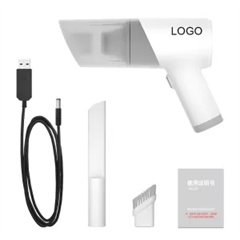The frequency of vacuuming your home can vary depending on several factors, including the number of occupants, the presence of pets, the type of flooring, and personal preferences. Here are some general guidelines to help you determine how often you should vacuum your home:
- High-Traffic Areas:
- Areas with heavy foot traffic, such as entryways, hallways, and living rooms, should ideally be vacuumed at least 2-3 times per week to prevent dirt and debris from accumulating.
- Bedrooms:
- Bedrooms, which typically have less traffic, can be vacuumed once a week or as needed. If you have allergies or asthma, more frequent vacuuming in bedrooms may be necessary.
- Dining Areas:
- Dining rooms and kitchens, where crumbs and food particles are common, should be vacuumed at least once a week.
- Pets:
- If you have pets, especially those that shed, vacuuming frequency should increase. Aim for 3-4 times a week or even daily in pet-prone areas. Pet hair and dander can quickly accumulate and trigger allergies.
- Allergies or Respiratory Issues:
- Individuals with allergies or respiratory issues may benefit from more frequent vacuuming. Vacuuming 2-3 times a week or more can help reduce allergens in the home.
- Hard Floors:
- Hardwood, tile, or laminate floors may not require as frequent vacuuming as carpets. Vacuuming these surfaces once a week or as needed to remove loose dirt and debris is generally sufficient.
- Vacuuming Techniques:
- Effective vacuuming techniques, such as slow, overlapping passes, can compensate for less frequent cleaning. If you vacuum thoroughly, you may not need to do it as often.
- Personal Preferences:
- Your personal preferences and cleanliness standards also play a role. Some people prefer a very clean environment and may choose to vacuum more frequently.
- Seasonal Considerations:
- Consider adjusting your vacuuming frequency seasonally. For example, you may need to vacuum more often during the fall when leaves and outdoor allergens are more prevalent.
- Vacuum Cleaner Efficiency:
- The efficiency and power of your vacuum cleaner can affect how often you need to vacuum. A high-quality vacuum with strong suction may require less frequent cleaning.
It’s important to note that these are general guidelines, and your specific circumstances may warrant more or less frequent vacuuming. Observing the cleanliness of your home and paying attention to signs of allergens, dust, or pet hair accumulation can help you determine when it’s time to vacuum. Ultimately, the goal is to maintain a clean and healthy living environment that suits your needs and preferences.


















